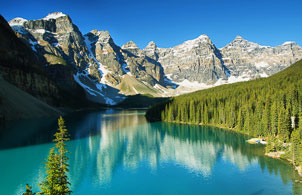
Wildlife and forestry conservators handle wildlife law enforcement, population management and protection at parks, recreation facilities, and conservation areas. Here are a few qualities that effective wildlife and forestry conservationists have in common:
- Detail oriented: It’s important to have a sharp eye and check things twice.
- Eco-Friendly: You are environmentally conscious and enjoy spending time outdoors.
- Dependable: People, wildlife, and the land you protect rely on you.
- Cautious: You need to be careful in the field to avoid injuries or accidents.
"I chose to further my education and accounting knowledge with ICS Canada while working as an accounting clerk, which allowed me to move up within the company at which I am currently working. Studying with ICS Canada was a great experience, and the instructors were very helpful when it came to resolving any issues I had while studying."
- Sean S., ICS Canada graduate
"I have taken three diploma courses with ICS Canada. It has been very rewarding and challenging. I love to increase my knowledge level and share experiences. ICS Canada is great. Enrol! The contact with them is always very pleasant. You feel like a part of the ICS team."
- Connie K., ICS Canada graduate
Your program includes:
- Customized payment plans with 0% interest
- Books and learning aids
- Study Planner App to customize your study plans and keep track of your progress
- Instructional support from our experienced faculty
- Your personalized online student homepage and learning portal
- Exclusive access to ICS Canada’s Student and Alumni Facebook Group
- Additional resources such as our online library and career guidance from Career Cruising
Does this program require previous experience in the forestry and conservation field?
No previous experience is necessary; this program is an excellent introduction to the conservation field.
More FAQs >
